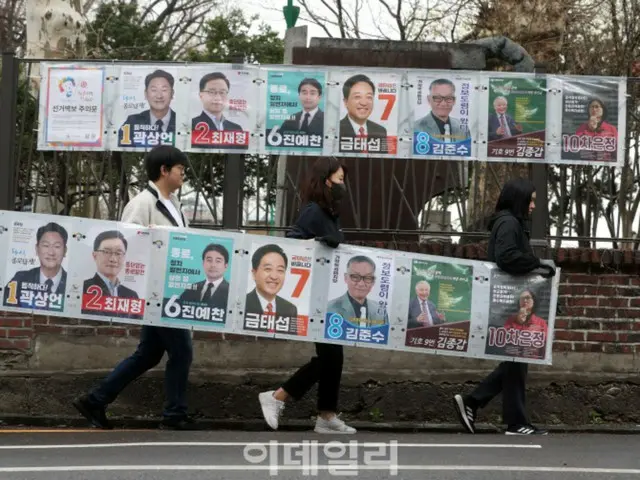A study has found that a bottom-up public election law that respects the autonomy of political parties is an effective alternative to introducing one at the national level.
According to the report, Chang Hyo-hoon, a senior researcher, examined the problems with the current election system and sought alternatives to it. He considered the American primary election system as an alternative.
The report stated that the current problem in the election process of the two major Korean political parties is that the small-scale election management committee appointed by the party leader is
They pointed out the excessive power of the Public Service Commission, the concentration of election rights in the central party, and the use of undemocratic top-down election methods such as single-candidate recommendations and strategic elections.
In fact, in the 22nd general election, the Democratic Party chose 25 of its 246 candidates (10%) as strategic public candidates, and 122 (50%) as vice-president candidates.
The People's Power Party also recommended 39 of the 254 candidates (15%) as a first choice, and 131 (52%) as a single choice, resulting in a primary election.
Only 84 candidates (33%) were elected through the primary election. As a solution to this problem, some in Korea are calling for the introduction of an American-style primary election system.
This election is held before the general election to select candidates for public office, and is open to not only party members but also general voters, which has the advantage of increasing the openness and democratization of the public election process.
However, the report concluded that the introduction of such a primary election system was "undesirable from the standpoint of constitutional theory and constitutional policy."
They also pointed out that forcing the primary election would excessively restrict the "freedom of political parties" guaranteed by Article 8, Clause 1 of the Constitution.
This is because there is a high possibility that the weakening of the sense of belonging of party members and public officials and the problem of adverse selection will occur in Korea as well.
He proposed the "Legislation of Bottom-Up Public Elections." This would allow political parties to choose between member primaries, member conventions, or primary elections.
In the member convention method, party members gather to decide on candidates through discussion and voting. In the primary election method, voters, including party members, participate in the election.
This method can be used when parties autonomously choose to elect their members. This method respects the autonomy of political parties without forcing them to adopt a single election method, but allows them to select candidates according to the principle of intra-party democracy.
The report said that one of the advantages of this is that it allows the process to be carried out in a bottom-up manner.
"It is possible and necessary to enact legislation to regulate public elections," he said, adding, "It is desirable to enact a bottom-up public election system that reflects the demands of intra-party democracy at a level that does not infringe on the freedom of political parties.
"It is possible," he concluded.
2025/03/30 14:29 KST
Copyrights(C) Edaily wowkorea.jp 91

